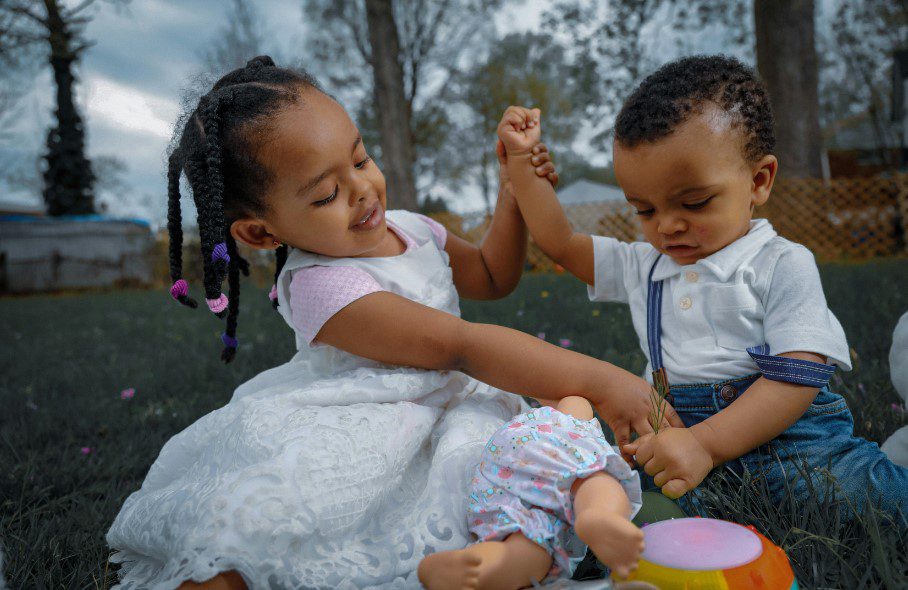Today, nurturing positive sibling relationships is more important than ever. As family dynamics evolve and change, siblings can sometimes find themselves growing apart. However, the benefits of maintaining strong bonds between siblings are immense and can have a lasting impact throughout their lives.
Cooperation between siblings is important as it helps children develop essential social skills such as teamwork, communication, cooperation, and compromise. This cooperation lays the foundation for healthy relationships, both within the family and beyond.
In this article, we explore effective strategies to promote positive sibling relationships in the 21st century. We also discover actionable tips that can help strengthen the bond between siblings and create lasting memories for years to come.
The Ugly Truth!
While siblings can share deep connections and lifelong friendships, their relationships are also characterized by conflicts, rivalries, and dynamics that evolve over time. Here’s a look into why sibling relationships aren’t always peaceful:
- Competition and Rivalry: Siblings naturally compete for parental attention, resources, and recognition. This competition can manifest in various ways, from academic achievements to social popularity or even physical prowess. Rivalry between siblings is common and can lead to jealousy, resentment, and feelings of inadequacy.
- Birth Order and Roles: Birth order often shapes sibling dynamics. Older siblings may assume roles of authority and responsibility, acting as mentors or caregivers to younger siblings. Conversely, younger siblings may strive to differentiate themselves or challenge the established hierarchy, leading to power struggles and conflicts.
- Personality Differences: Each sibling possesses unique personality traits and temperaments that influence their interactions. Personality clashes, such as introversion versus extroversion or differing values and interests, can create tension and misunderstandings.
- Parental Comparisons: Parents’ tendencies to compare siblings can exacerbate rivalry and insecurity. Favoritism, whether real or perceived, can strain relationships and diminish trust between siblings.
- Life Transitions and Changes: Major life events such as moving, parental divorce, or the arrival of a new sibling can disrupt sibling dynamics. Adjusting to these changes may create temporary or long-term friction as siblings navigate new roles and expectations.
What are the Benefits of Positive Sibling Relationships?

Research has shown that positive sibling relationships contribute to emotional well-being, social development, and overall happiness. Siblings are often a child’s first playmates and serve as important role models.
Positive sibling relationships offer a multitude of benefits that extend far beyond childhood, impacting individuals throughout their lives:
1. Emotional Well-being:
Siblings provide emotional support during difficult times, offering a sense of security and comfort.
- Reduced Stress and Depression: Studies show that strong sibling bonds offer a buffer against stress and can lower the risk of depression later in life. Siblings provide a sense of belonging, understanding, and support, which fosters emotional resilience.
- Higher Self-Esteem: Positive interactions with siblings can boost self-confidence and self-worth. Siblings offer a sense of acceptance and belonging that can contribute to a positive self-image.
- Stronger Social Skills: Sibling relationships serve as a training ground for navigating social interactions. Siblings learn to share, compromise, communicate effectively, and manage conflict, all valuable skills for building healthy relationships outside the family.
2. Lifelong Support, Bonding and Social wellbeing:
Interacting with siblings helps children develop essential social skills such as love, sharing, cooperation, and conflict resolution. Siblings often share unique experiences and memories. This creates a lifelong bond that can withstand the test of time.
- Unconditional Love and Acceptance: Siblings often share a unique and enduring bond, knowing each other on a deeper level than most others. This can provide a sense of unconditional love and acceptance, a source of comfort and support throughout life’s challenges.
- Shared History and Memories: Siblings share a lifetime of experiences, creating a strong sense of connection and shared history. This shared past can be a source of comfort and joy, strengthening the bond even as individuals grow older.
- Advocacy and Support: Siblings can become lifelong confidantes and advocates. They may be the first to offer support during difficult times and celebrate each other’s successes.
3. Overall Development:
In an era where technology often dominates communication, strong sibling bonds provide children with essential interpersonal skills that are vital for success in both personal and professional spheres.
- Conflict Resolution Skills: Sibling relationships often involve disagreements and conflict. Learning to navigate these situations constructively equips individuals with valuable conflict resolution skills that benefit them in all aspects of life.
- Empathy and Understanding: Through interactions with siblings, individuals learn to consider others’ perspectives, develop empathy, and practice understanding different viewpoints.
- Resilience: Overcoming challenges and resolving conflicts within the sibling relationship fosters resilience, a crucial skill for navigating life’s inevitable difficulties.
Tips to Hep Parents Promote Positive Sibling Relationships

1. Cultivate Open Communication
Encourage open and honest communication between siblings. Create a safe environment where they can express their thoughts, feelings, and concerns without fear of judgment. Active listening is key to fostering meaningful conversations.
2. Encourage Cooperation and Teamwork
Provide opportunities for siblings to work together towards common goals. Whether it’s completing household chores, playing team sports, or working on a project together, collaboration fosters a sense of unity and cooperation.
3. Set Clear Expectations
Establish clear expectations for behavior and conflict resolution. Teach siblings to express their feelings constructively and resolve conflicts peacefully. Encourage them to find mutually acceptable solutions when disagreements arise.
4. Promote Individual Relationships
Recognize and respect each sibling’s unique personality and interests. Encourage them to spend one-on-one time together, engaging in activities they both enjoy. This helps strengthen their bond and fosters a deeper understanding of each other.
5. Create Family Rituals
Establishing family rituals and traditions helps strengthen the bond between siblings. Whether it’s a weekly movie night, a monthly game night, or an annual family vacation, these shared experiences create lasting memories and strengthen family ties.
6. Provide Individual Attention
Make time for one-on-one interactions with each child. Quality time spent with each sibling helps reinforce their sense of value and belonging within the family unit.
7. Teach Conflict Resolution Skills
Help siblings develop effective conflict resolution skills. Teach them to listen actively, express their feelings calmly, and find compromises that satisfy everyone involved.
8. Celebrate Achievements Together
Celebrate each sibling’s achievements and milestones together as a family. Whether it’s a graduation, a promotion, or a personal accomplishment, recognizing and celebrating each other’s successes strengthens the bond between siblings.
9. Encourage Forgiveness
Teach siblings the importance of forgiveness and letting go of grudges. Help them understand that everyone makes mistakes, and forgiveness is essential for maintaining healthy relationships.
10. Lead by Example
As parents or caregivers, model positive behavior in your own relationships. Siblings often mimic the behavior they see in adults, so demonstrating kindness, respect, and empathy sets a powerful example for them to follow.

In Conclusion
In conclusion, promoting positive sibling relationships in the 21st century requires time, effort, and commitment. By fostering open communication, encouraging cooperation, and leading by example, parents and caregivers can help siblings develop strong, lasting bonds that will serve them well throughout their lives.





Leave a Reply